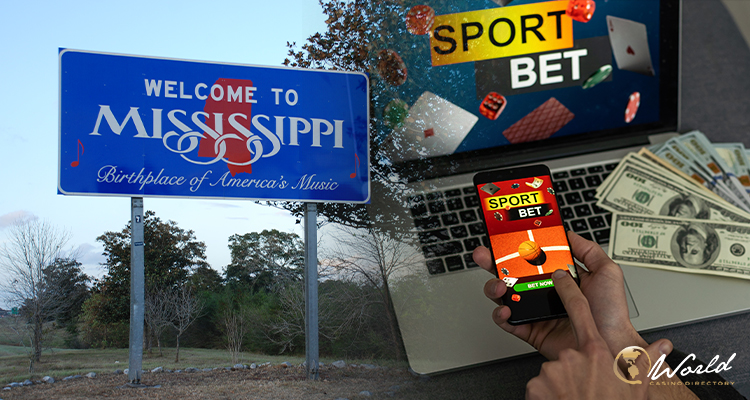As Mississippi Rep. Casey Eure projects to officially lead a sports wagering charge in Mississippi, rest of the lawmakers are setting things in motion.
Over the past week, Democrat Rep. Cedric Burnett, officially presented Mississippi’s online sports betting legislation, titled HB 271. However, this ongoing week, Republican Rep. Jay McKnight, submitted the individual legislation, titled HB 635, to enable mobile wagering. Both legislations legitimize online sports wagering across the aforementioned state for pre-existing license holders.
Mississippi may legalize online sports wagering in 2024:
Official sport wagering in the state started in 2018. However, only geo-fenced online sportsbooks were legally permitted on casino lots. Going towards the session, industry shareholders think Mississippi represents 1 of the states that will more likely officially enact sports wagering bill during this ongoing year.
On a related note, this autumn, the Mississippi Mobile Online Sports Betting Task Force gathered on many occasions to collect recommendations and information for online extension. In addition, the Legislature formed the said task force by revising the online sports wagering legalization legislation throughout the 2023 session.
Throughout the meetings of the task force, Eure commented that he would utilize the information collected throughout the aforementioned process to design his legislation. His sports wagering bill in the previous year was the cause for the formation of the aforementioned task force.
In this regard, throughout an October’s meeting of the task force, he commented according to LSR: “Now, I can’t sit here and tell you for sure that it’s gonna pass the House and I’ll be able to send it to the Senate, but I wanted everybody to know where I stood from day one.”
2 sports wagering legislations:
The 2 sports wagering legislations mentioned above revise the Gaming Control Act to permit the gaming operators in the Mississippi to officially debut their own sportsbooks or enter into an alliance with an operator.
In compliance with the report of the task force, there are a total of twenty-six casinos in the said state. In addition, the legislations also remove a ban on daily fantasy sports operators from providing competitions based on separate college athletes.
Regarding the tax structure, the aforementioned legislations produce a multi-level tax structure which is based on the income collected from online sports wagering. The levels are:
- 4% of income up to $50,000
- 6% on income between $50.000 and $134,000
- 8% on income over $134,000
The rate of 8% is in correspondence with the task force’s recommendation and in-person sport wagering. The task force projects that Mississippi could deliver a maximum of $27.1 million in tax income per year.
Opposition:
16 companies manage casinos in the state. However, not all of them agree with the extension of sports wagering online.
Smaller, independent operators are afraid that said extension could take a big toll on casino income. In addition to that, they believe that the large operators will control the market.
In response to these worries, legislators expressed sympathy. On that note, Sen. Mike Thompson commented throughout a meeting of the task force this autumn: “My primary concern is how to make sure that we don’t do anything that jeopardizes the destination gaming product that Mississippi gaming has been built on.”
Furthermore, the presidential election that took place on November had several industry shareholders worried that politics could disrupt sports wagering, which will demand bipartisan collaboration.
On that note, 1 industry source commented heading towards the session: “We’re seeing headwinds in states like Georgia and Mississippi, where people felt like they might be closer. In an election year with vocal opposition, it makes it harder for lawmakers to feel comfortable moving forward.”



